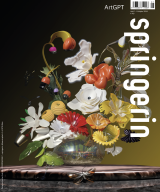
Mission interconnectedness
A roundtable on 20 years of Net culture
The Internet platform t0 – Public Netbase in Vienna and the magazine Mute in London both have an emphasis on critical media discourse and both came into being about twenty years ago. Both played a pioneering role in their respective contexts as regards the emergence of a diverse Net culture and the discourse accompanying it. Both have been exposed, in different ways, to the upheavals and turning points of the ensuing era. More than enough reason then to reflect on developments in the field and track parallels and divergences in various locations, as well as to look into future prospects. To which end, representatives from both platforms took part in the following roundtable. They remain active today in the World Information Institute, which grew out of Public Netbase, and in the online medium metamute.org.


